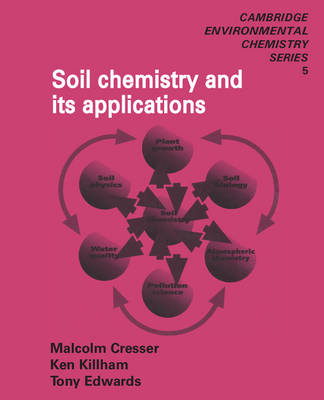Cambridge Environmental Chemistry
2 total works
Soil Chemistry and its Applications
by Malcolm S. Cresser, etc., Ken Killham, and Anthony Edwards
Published 6 May 1993
The central role of soil chemistry in the ecosystem and other disciplines is becoming increasingly important. For example the effects of the increased levels of atmospheric carbon dioxide, and accelerated use of pesticides, on soil fertility has been a focus of much high-level debate. This text begins by defining the relationship between soil chemistry and other fields such as plant science and pollution science. A detailed description of the components of soils follows, including inorganic, mineral and organic matter. The book addresses cogent issues such as soil fertility and soil pollution. In a concluding chapter, a review of future analytic advances in the study of soil chemistry is given, emphasising the importance of the soil chemist in equitable and sustainable land use and agricultural policy. The book is an ideal starting point for the student undertaking undergraduate study in the environmental and soil sciences.
First published in 1987, this book examines the numerous interacting physical, chemical and biological processes which regulate the acidity of freshwaters. Natural acidification processes are considered first, the the effects of acidifying pollutant inputs from the atmosphere and of other human activities. The relative importance of the different processes is critically examined. Concepts incorporated are drawn from chemistry, physics, geology, hydrology, plant science and forestry, soil science, microbiology and meteorology. The authors have attempted to thread the relevant information together to make a coherent story which should be understandable and useful to readers from a number of disciplines: undergraduates and postgraduates studying environmental science, ecology, water quality and hydrogeochemistry; politicians and managers concerned with pollution control. Indeed, most of the text should be understandable to well-informed non-scientists who want (or need) a better grasp of this fascinating and important topic.

